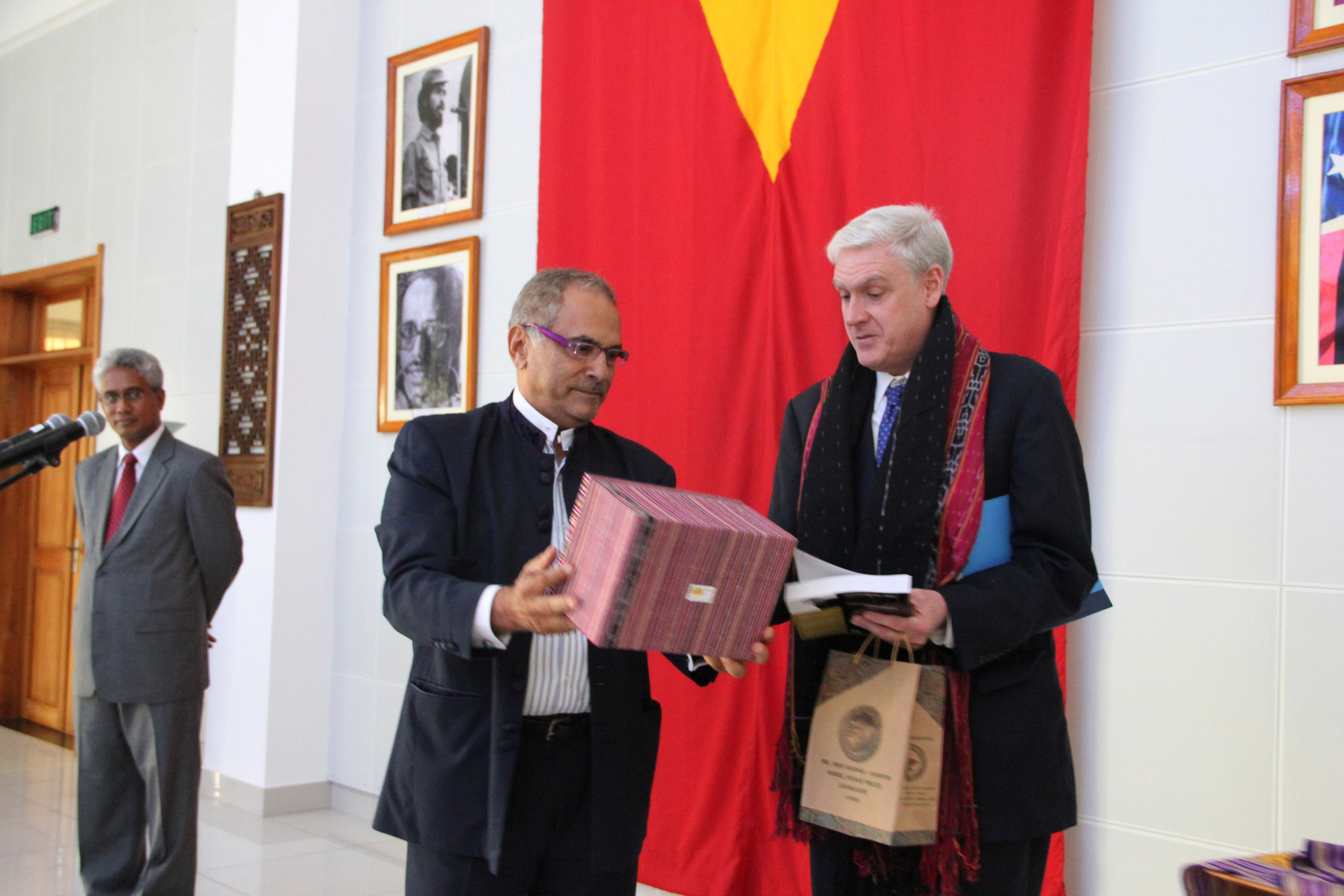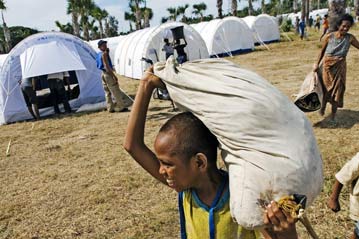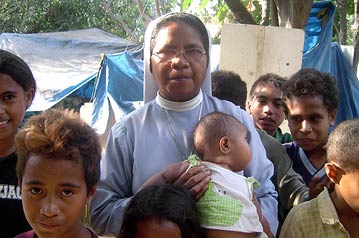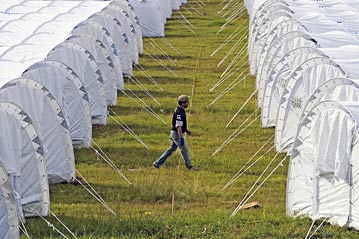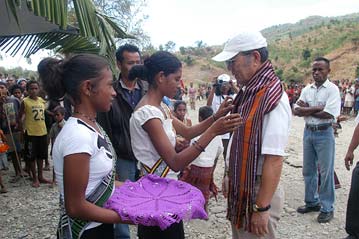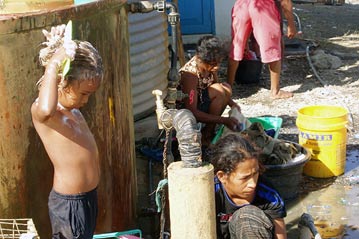East Timorese returning for Independence Day
East Timorese returning for Independence Day

East Timor's refugees return from West Timor to celebrate independence on May 20.
DILI, East Timor, May 3 (UNHCR) - Less than three weeks before Independence Day, refugees from East Timor are rushing home to become full-fledged citizens of the world's youngest nation.
In the weeks leading up to the state's May 20 transition from a UN-administered territory to a fully East Timorese-run government under President-elect Xanana Gusmão, UNHCR is concentrating its efforts on facilitating the voluntary return of as many of the remaining 55,000 refugees as possible.
"Over the last month, more than 6,000 refugees have returned to East Timor, the largest monthly return rate that we've seen in the last two years," UNHCR spokesman Peter Kessler told a press briefing in Geneva.
"Returnees tell UNHCR field staff that they are back because they want to be involved in the new East Timor, and feel confident that the nation's stability is assured, thanks to Mr Gusmão's landslide victory in the Presidential elections," Kessler said.
Some 205,000 Timorese have returned home since repatriation movements began in October 1999, 75 percent of them organised by the UN refugee agency in partnership with a host of agencies including the International Organization for Migration, the state's UN administration and UN peacekeepers.
East Timor's President-elect himself is working with the UN refugee agency to encourage his countrymen to repatriate and work towards reconciliation.
President-elect Gusmão is currently in South Sulawesi with the refugee agency's operations chief in a joint effort to broker the return of some 1,000 East Timorese refugees who have been holding out on the remote archipelago since fleeing home in 1999.
Last month, Gusmão and UNHCR staff travelled to Indonesian West Timor where mass meetings were held with refugees in Atambua and Kefa.
An estimated 260,000 people fled East Timor into the adjacent Indonesian province of Nusa Tenggara Timur on the western half of Timor, after East Timorese overwhelmingly voted for independence from Indonesia in a UN-organised referendum in August 1999.
Many of the refugees were intimidated into leaving by anti-independence militias, which destroyed much of East Timor during a rampage that lasted several days after the vote.
Despite the presence of armed militia groups, relief agencies have worked to help refugees homewards, but their efforts were frequently stymied by militia leaders who held sway over many of the squalid refugee settlements.
In an incident that shocked the world and drew international condemnation, three UNHCR staff were murdered in Atambua, Indonesia in September 2000 when protesting militia gangs ransacked UNHCR's office overseeing repatriation operations in the area.
Due to security concerns, UNHCR and most relief agencies subsequently withdrew from the Indonesian western half of Timor, where the majority of the refugees were settled. Despite the killings, UNHCR and its partners nevertheless worked closely with the Indonesian government to conduct repatriation operations and to help more than 70,000 people return home since the tragic murders took place.


